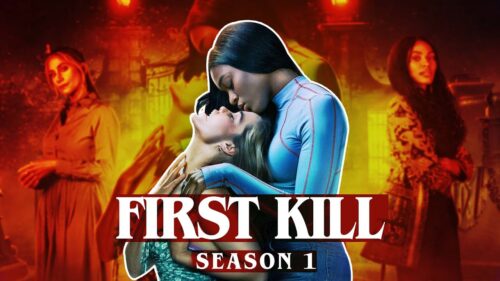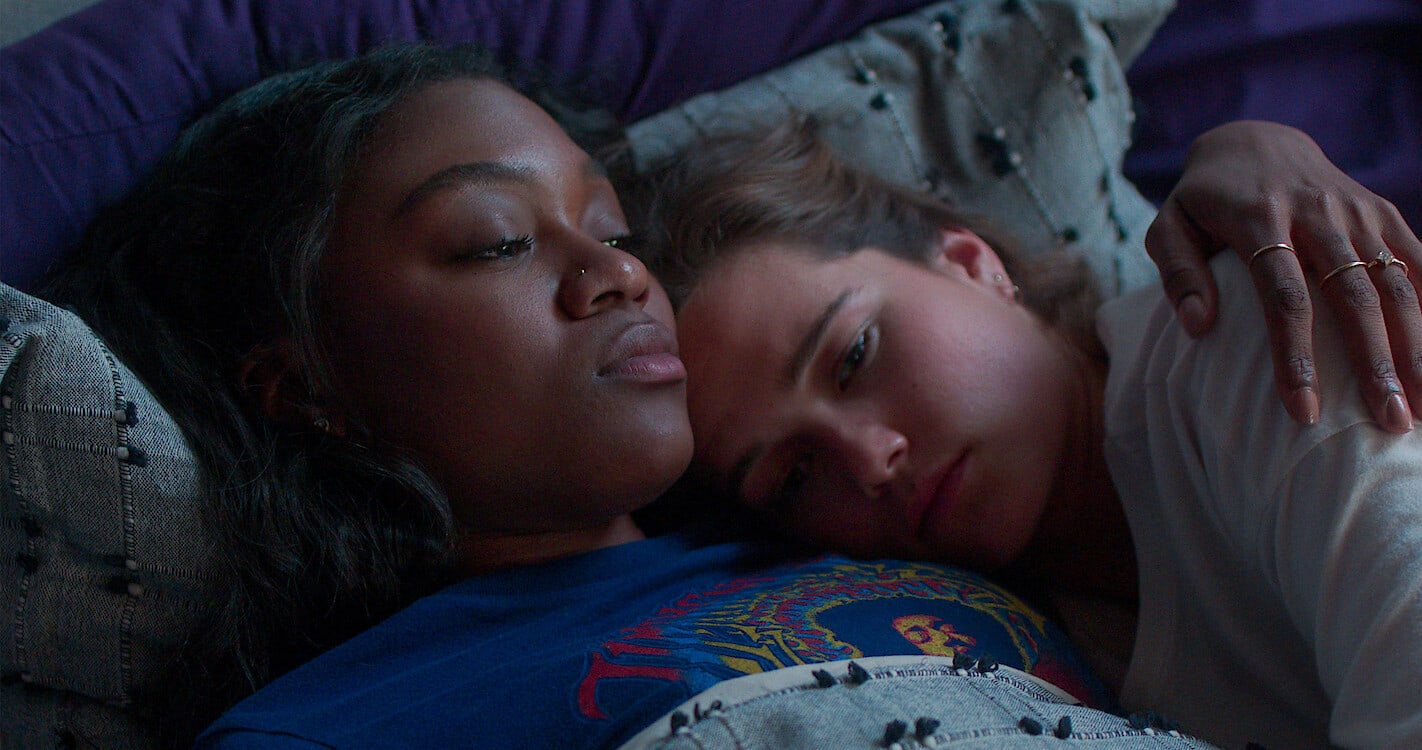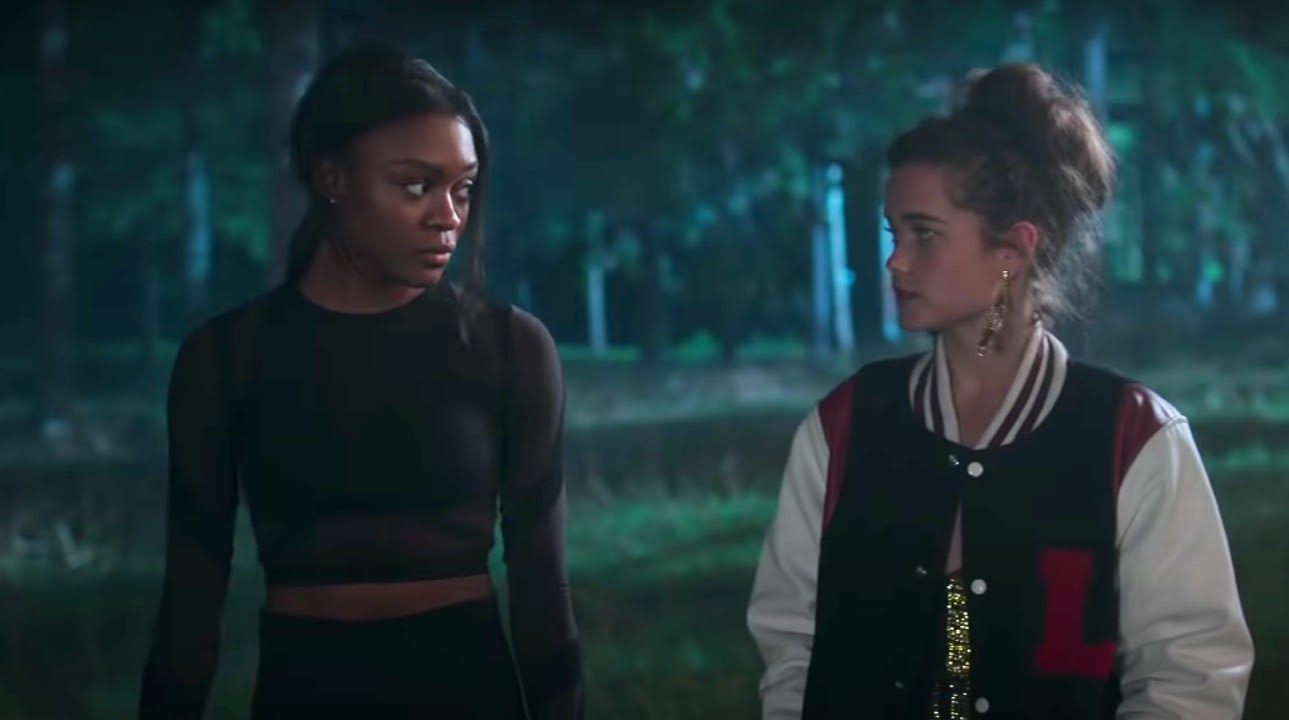A detailed review of First Kill Season 1.

| Release on OTT | June 10, 2022 |
| IMDB | 5.9 |
| Genre | Drama, Horror, Mystery |
| Director | V.E. Schwab |
| Cast | Sarah Catherine Hook, Imani Lewis, and Elizabeth Mitchell |
| OTT Platform | Netflix India |
| Language | English |
The Plot of the series First Kill Season 1.
Isn’t it true that we all enjoy stories about forbidden youthful love? Are people from opposing camps uniting for the ultimate love story? It appears to be particularly frequent in episodes involving teenagers and the supernatural. Netflix’s latest adolescent drama features a familiar plot, but it’s delivered in a modern, 2020s setting.
It was tempting to think that Netflix’s new adolescent program First Kill Season 1 got misplaced on its way to The CW after watching the teaser. However, after viewing the episodes, it’s important to apologize to The CW for the disrespect to a genre it’s excelled at for years, which First Kill Season 1 spends an inordinate amount of time attempting to replicate with little success.
Also read – Best review On Two Summer Season 1, Is It Possible to Have Too Much Fun?
First Kill Season 1 carefully puts up its YA supernatural show bingo board, based on a short tale by V.E. Schwab, who also authored the first episode and produced the series. Bitchy sisters and ice queen mothers, authoritarian fathers, and wisecracking closest friends are among the characters. Vampires, ghouls, and werewolves all exist.
Between their familial responsibilities and raging hormones, vampire Juliette (Sarah Catherine Hook) and vampire hunter Calliope (Imani Lewis) are star-crossed lovers. Despite all of the effort put into making sure First Kill Season 1 strikes all of the proper notes, the series feels more like an uncanny valley version of what it’s supposed to be.

The Review of the series First Kill Season 1.
The drama follows Juliette and Calliope (aka “Cal”) as they struggle to balance their birth rights with not only the hell that is high school, but also their immediate attraction to each other, over the course of eight episodes, all of which will be available on Netflix today (June 10) when the review embargo also lifts.
The two can never be together, as Juliette’s parents Sebastian (Will Swenson) and Margot (Elizabeth Mitchell, strangely), and Cal’s parents Talia (Aubin Wise) and Jack (Jason R. Moore) all insist over and over again. Of course, the Romeo and Juliet analogies are intended, but they’re far too blatant to be especially creative, Sapphic twist or no Sapphic twist. The same can be said about the show’s blatant attempts to be a new take on “Twilight,” whose blatant attempts to be a new take on “Twilight”.
There’s a decent narrative hidden someplace deep within First Kill Season 1, which was based on a short story by V. E. Schwab. It’s the traditional Romeo and Juliet scenario, with two star-crossed lovers falling in love and attempting to make things work despite their adversity. However, the first episode is hampered by a clumsy execution that makes it tough to discover the plot.
Almost every second of the story is explained away by Juliette’s or Cal’s narration. We all know how much narration is used in teen shows, and it’s especially prevalent in everything we see the premiere on The CW. However, when a character’s “inner thoughts” are expressed in virtually every other scene, it’s a clue that what’s on screen isn’t doing enough to carry the plot along.

The moms in First Kill Season 1 are far more terrifying than the monsters themselves, who are far too badly rendered to be frightening. Fortunately, the action sequences are well-choreographed enough to distract you from the creatures’ lackluster appearance. Aside from vampires, the Burnses combat ghouls and shapeshifting animals who seem like they stepped off the set of Buffy in 1999.
Furthermore, the visual effects utilized to augment these supernatural creatures are inconsistent — some are entirely CGI, while others are plainly just people in heavy makeup — and this imbalance just adds to their appearance of being out of place.
Maybe it did when Schwab wrote it for a different media. Onscreen, it’s more of a botched attempt at relevancy than a story anybody can get their teeth into, which is a shame. There’s something to be said for the fact that LGBTQ+-friendly adolescent programs have evidently gotten popular enough to put together a show like this these days (not every queer show can or should be capital m Meaningful).
It’s still distressing to see #representation devolve into a jumble of clichés and buzzwords for a network seeking to make a living off the bragging rights of incorporating it at all.
“Happy Watching”

